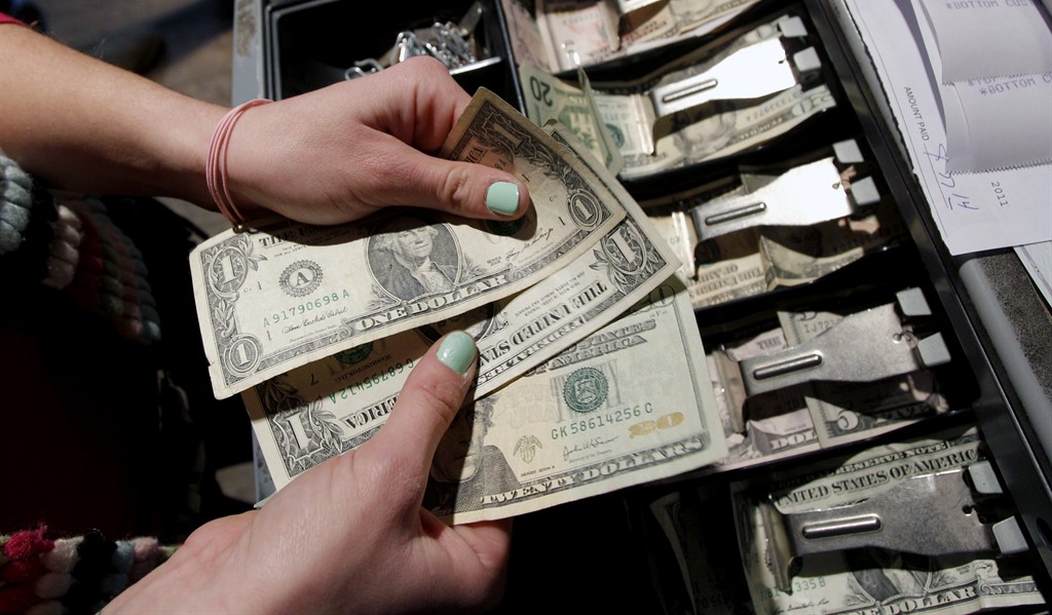"Let me say for the billionth time: Reporters don't root for a side. Period."
The "super depressing" story he was reacting to came from the Center for Public Integrity. According to its just-released study, more than 96 percent of donations from media figures to either of the two major-party presidential candidates went to Hillary Clinton.
Left-wing outfits and various members of the journalistic guild nitpicked the report's methodology. And they made some good points. The study blended former journalists and people in the journalism business with actual reporters.
NPR interviewed Len Downie, the former executive editor of The Washington Post, about the report, and while he echoed many of these criticisms, he nonetheless criticized reporters who give money to presidential campaigns.
"No journalist should contribute, as far as I'm concerned, to political campaigns," said Downie, who added that it creates "appearances of conflict of interest" for both journalists and news organizations.
This is an ancient and -- by my lights -- ridiculous controversy. Anyone who has spent a moment around elite reporters or studied their output knows that they tend to be left of center. In 1981, S. Robert Lichter and Stanley Rothman surveyed 240 leading journalists and found that 94 percent of them voted for Lyndon Johnson in 1964, 81 percent voted for George McGovern in 1972, and 81 percent voted for Jimmy Carter in 1976. Only 19 percent placed themselves on the right side of the political spectrum. Does anyone think the media has become less liberal since then?
None of this means liberals -- or conservatives -- can't be good reporters, but the idea that media bias is nonexistent is ludicrous. Judges have far greater incentives to be neutral and objective, yet we know that Democrat-appointed judges tend to issue liberal decisions, and Republican-appointed judges tend to issue conservative decisions.
Recommended
The Obama administration and campaigns have hired dozens of prominent, supposedly nonpartisan journalists, including former White House press secretary and Time magazine reporter Jay Carney, former Time managing editor Rick Stengel, The Washington Post's Shailagh Murray and ABC's Linda Douglass.
Was it just a coincidence that they were all ideologically simpatico with the Obama agenda? How did the Obama team even figure out they were liberals in the first place?
The controversy over political donations gets the causality backwards. Donations to political campaigns are downstream of ideology. What I mean is, giving money to a liberal politician doesn't make you a liberal. Being a liberal motivates you to give to the politician.
I don't give money to campaigns for any number of reasons. But if I did, would anybody be shocked if I gave to conservative politicians?
Of course, I'm not a news reporter. I'm an opinion journalist. But imagine if instead of a prohibition on political donations there was a requirement. Reporters could give to anyone they wanted, but they had to make a donation of, say, $500. Does anyone doubt that the vast majority of reporters at The New York Times, The Washington Post or NBC would give to Democrats?
Downie and other journalistic Brahmins point to survey data showing that many journalists describe themselves as "independents," as if this is an impregnable fortress of ideological and partisan neutrality. It's not. It's more like a duck blind allowing journalists to hide their partisan biases. Former CBS anchor Dan Rather, who swore liberal media bias was a "myth," said that "anybody who knows me knows that I am not politically motivated, not politically active for Democrats or Republicans, and that I'm independent."
That was the same Dan Rather who destroyed his career on a partisan, fraudulent witch hunt to take down George W. Bush.
One of the reasons I like good opinion journalism, particularly in long-form magazine articles, is that it doesn't hide from the fact it is making an argument. You know where the author is coming from, and you can take that into account as he or she marshals facts and evidence for his or her case. We know opposing lawyers in a courtroom are biased, but if they don't make strong arguments, they lose.
I understand bans on reporters giving to campaigns, but we should understand what those bans are: a means of hiding the political leanings of reporters from readers and viewers. This lack of transparency benefits news organizations, but it really doesn't fool anybody -- except maybe the reporters themselves.

























Join the conversation as a VIP Member